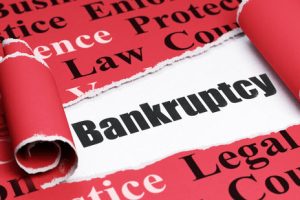A Quick Three-Step Bankruptcy Recovery Plan

Technically, bankruptcy filings remain on credit reports for seven years. However, in many cases, the process of recovering from a bankruptcy filing could begin in as little as seven weeks. Frequently, that’s before the case is even getting started in court. So, if you quickly form a bankruptcy recovery plan and stick to it, by the time the filing falls off your credit report, the adverse credit incident will be in your rearview mirror.
A Chicago bankruptcy lawyer isn’t just an important partner in the filing process. A lawyer helps you recover from the filing and maximize your fresh start. Bankruptcy helps good people start over. It’s not a permanent ball and chain. Ultimately, everyone wants the same thing. Creditors want former debtors to be able to borrow money and former debtors want to maintain control over their own financial situations.
Stay Current on Secured Debts
Most secured lenders, like auto and home mortgage companies, report payments directly to credit bureaus. After a few consecutive on-time payments, your score will begin to rise. That’s especially true if, as is usually the case, the debtor previously had a strong of late payments. Everyone likes a good comeback story. That includes the people who design algorithms for credit bureaus.
Likewise, credit card and other unsecured lenders often report payments to credit agencies. A few large landlord and auto insurance companies also make direct reports. Doctors and other medical providers usually don’t report payments. However, these providers quickly turn unpaid accounts over to debt collectors. Nothing sinks a bankruptcy recovery effort faster than new debt buyer referrals.
Additionally, it’s normally a good idea to make thirteen payments a year instead of twelve. Adding an extra $50 or so to each payment quickly builds a financial reserve. This reserve enables debtors to weather future financial storms. A reserve also builds goodwill with the lender, which the debtor could cash in later. Moreover, a payment reserve enables early payoff. That could save you thousands of dollars.
Get a Credit Card
People who demonstrate responsible credit use typically recover faster than people who pay cash for everything. Almost all credit card issuers offer loans to former bankruptcy debtors. These lenders know there’s a waiting period for another discharge. So, the loan isn’t as risky.
Look for a secured card with about a $1,000 spending limit. If the card company doesn’t add a “secured card” memo to its monthly credit bureau reports, that’s even better. Use the card every month and pay more than the minimum every month.
Use caution when asking for credit increases. A higher credit limit usually enhances the on-time payment effect. However, a request, especially a declined request, could negatively impact your score.
Be Honest
No one likes unpleasant surprises. So, when you try to borrow money, always tell the loan officer about your prior filing before the loan officer runs your credit history. Having a conversation at this point gives you a chance to soften the blow.
Some lenders don’t work with damaged credit borrowers. Don’t take that refusal personally. The same rule applies to everyone. Additionally, your Chicago bankruptcy lawyer probably knows of other lenders who are more than willing to make high-risk loans.
Reach Out to Diligent Cook County Lawyers
No matter what kind of financial problem you are having, bankruptcy could be a way out. For a free consultation with an experienced bankruptcy attorney in Chicago, contact the Bentz Holguin Law Firm, LLC.
Source:
forbes.com/advisor/credit-score/bankruptcy-on-credit-report/


